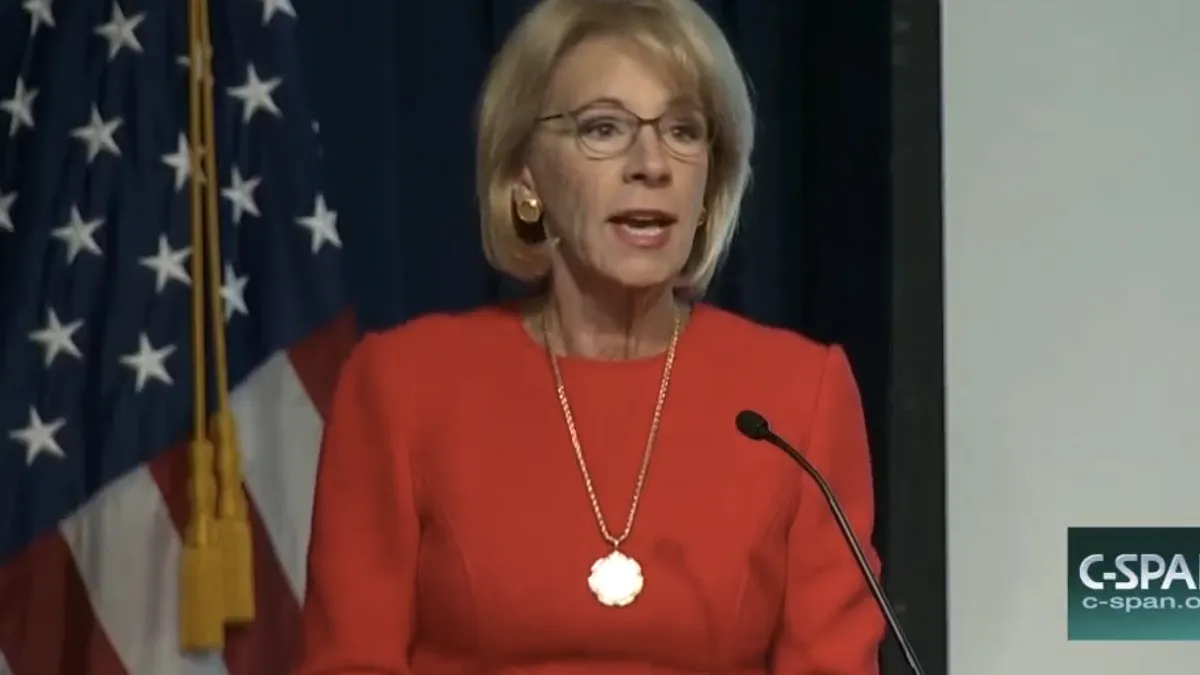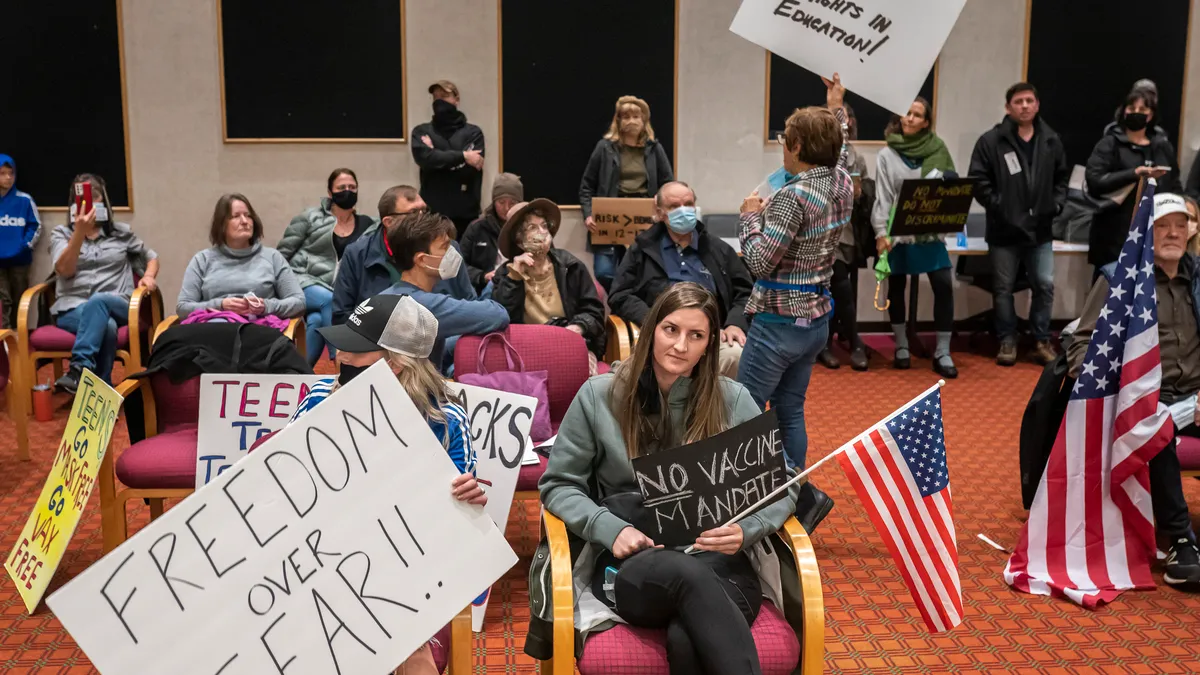Dive Brief:
- The U.S. Department of Education (ED) is postponing until July 1, 2020 the date states need to comply with an Obama-era rule under the Individuals with Disabilities Education Act (IDEA) that would address whether minority students are disproportionately placed in special education. Secretary of Education Betsy DeVos's office has also announced postponing the date for including children ages 3 to 5 in the analysis of significant disproportionality from July 1, 2020 to July 1, 2022, according to a document released by the ED and published in the Federal Register today.
- During the public comment period on the "equity in IDEA" rule, 390 parties submitted comments, with many commentators opposing the notion of postponement, arguing that the status quo is unacceptable, that states have failed to adequately solve the issue — which some regard as a civil rights problem — and that federal government needs to intervene.
- However, the announcement says the ED does not feel that the causes and solutions for the problem have received sufficient study and believes “that the racial disparities in the identification, placement or discipline of children with disabilities are not necessarily evidence of, or primarily caused by, discrimination, as some research indicates.” The delay, the department says, will “also give states the opportunity to examine this issue through their own policies and procedures.”
Dive Insight:
The news that ED is delaying compliance of the Obama-era special education rule does not come as a shock to most educators. DeVos and her team have been proposing the delay for months. Some say the delay is the result of a directive issued by President Donald Trump which requires all federal agencies to identify regulations for “repeal, replacement or modification.” Some opponents of the decision claim that DeVos lacks understanding of the issues or is deliberately targeting minorities, while others say DeVos simply views these issues from a state-led school choice perspective.
Many frame the delay as a civil rights and equity issue. Reports, such as the one released in April by Harvard University, add fuel to that argument. The report, entitled “Disabling Punishment," asserts that black students with disabilities miss significantly more class time because of suspensions than their white peers. As Catherine Kramarczuk Voulgarides, author of “Does Compliance Matter in Special Education? IDEA and the Hidden Inequities of Practice” said, “We need to identify educational policy and practice remedies that seriously contend with the historical and social contexts that define the United States education system. If we don’t, we exhibit a concerning historical amnesia that denies the salience of race in American society and on educational outcomes.”
Whether the decision to delay implementation is a mistake or not remains to be seen. The ED defends the ruling, saying it will allow the administration to “ensure that we end up with a regulation that does address these issues appropriately.” The delay will allow time for more research and more voices to be heard. In the meantime, while the delay will impact how schools respond to the required compliance regulations, there is no rule that prevents schools from actively setting goals to reduce overrepresentation of minority students in special education on their own.












